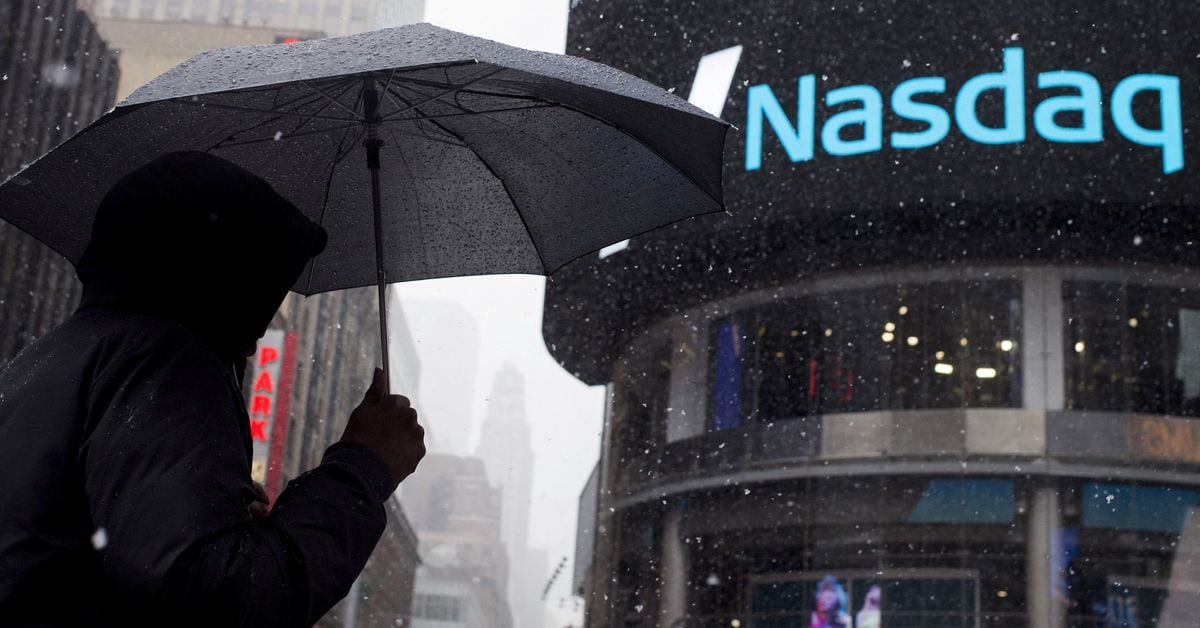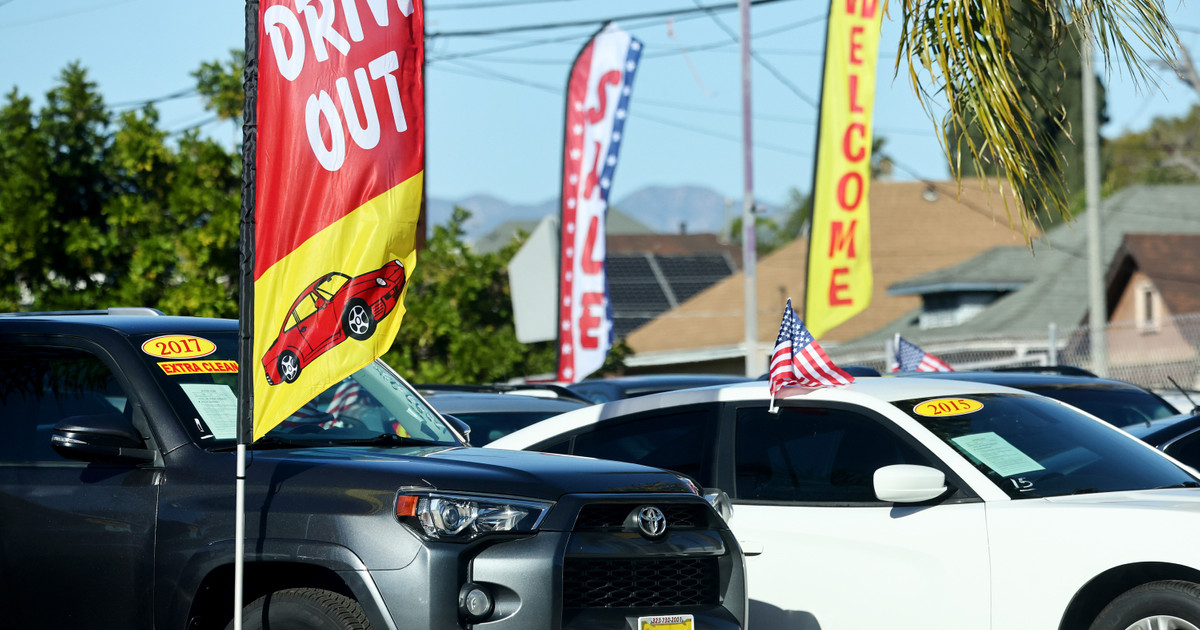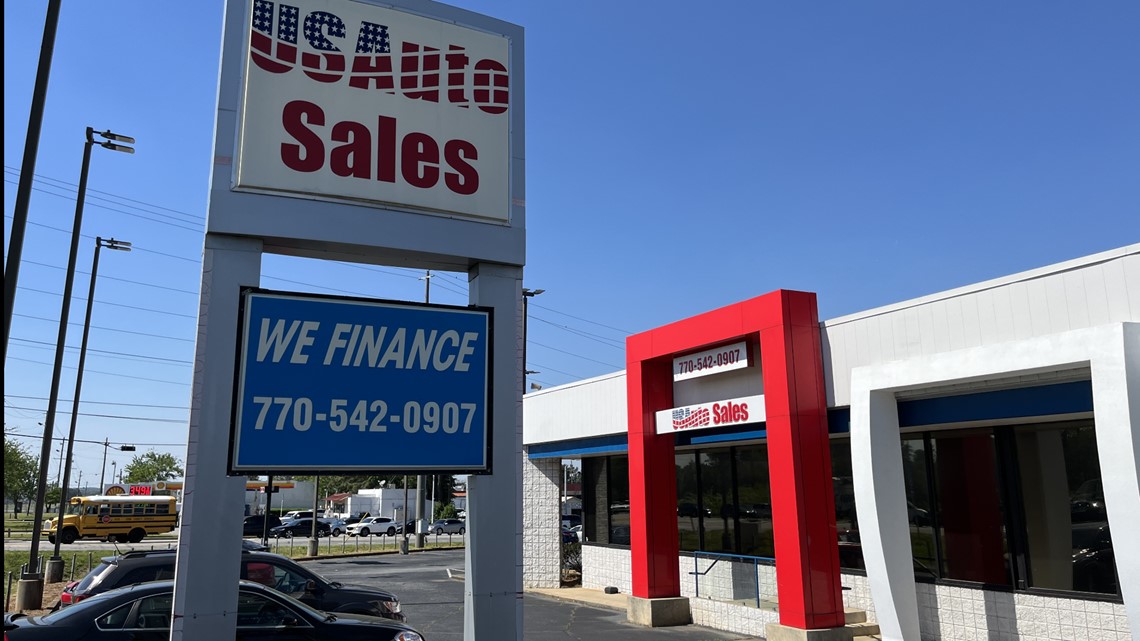Is the end nigh?
- Thread starter Gomez Adams
- Start date
You are using an out of date browser. It may not display this or other websites correctly.
You should upgrade or use an alternative browser.
You should upgrade or use an alternative browser.
Incoming bailout:
Moody’s has put the credit ratings of six large US banks, including Bank of New York Mellon, State Street and Northern Trust, under review for a possible downgrade.
The credit ratings agency said late Monday that its warning on the three banks reflected “ongoing strain” in the US banking sector, including increased pressures on funding and potential “weaknesses” in the amount of capital lenders are required to hold.
A lower credit rating could push funding costs for those banks even higher.
US stock futures sank on the news, with the Dow set to open 250 points, or 0.7%, lower. S&P 500 futures also fell 0.7%, and Nasdaq futures were 0.8% lower.
Once again it's all fun and games because everybody has credit. The sad part is, nobody has any money. They just keep racking up the debt.
If they haven't already.
Loading…
www.cnn.com
Americans’ credit card debt levels have just notched a new, but undesirable, milestone: For the first time ever, they’ve surpassed $1 trillion, according to data released Tuesday by the Federal Reserve Bank of New York.
During the second quarter, credit card balances shot up by $45 billion, or nearly 4.6%, to land at $1.03 trillion, according to the New York Fed’s latest Quarterly Report on Household Debt and Credit.
Rising credit card debt and auto loan balances helped to drive overall household debt levels up 1%, to $17.06 trillion for the quarter, the report showed. Overall household debt has spiked by $2.9 trillion since the end of 2019, before the pandemic. The New York Fed’s debt balances are nominal and not adjusted for inflation.
These increases are coming at a time when interest rates have quickly vaulted to a 22-year high.
It's only a matter of time before people just stop paying and start filing for bankruptcy protection.If they haven't already.
Burry has shorted the S&P and NASDAQ 100 to the tune of about 1.6 billion dollars.

 www.reuters.com
www.reuters.com

Burry, famous for 'Big Short,' bought bearish options against S&P, Nasdaq 100
Michael Burry, the money manager made famous in the book and film "The Big Short," held bearish options against the broad S&P 500 and Nasdaq 100 Index at the end of the second quarter, according to securities fillings released on Monday.
It is ALL a scam.
To be fair, anybody stupid enough to buy one deserves what happens to them.
To be fair, anybody stupid enough to buy one deserves what happens to them.
Early on I realized expensive hockey cards collectibles were only worth want people wanted to pay now, not tomorrow.
I'm dealing with that right now with aRoyal Dalton Lladro figures, Waterford crystal and Beanie Babies in boxes.
I'm dealing with that right now with a
Macy's sounds the alarm.
New YorkCNN —
Macy’s is warning of a spike in customers who are failing to make credit card payments, adding to the evidence of mounting financial stress on consumers.
The iconic department store had anticipated delinquencies would climb following a post-Covid lull. But Macy’s management has been caught off guard by the magnitude of the uptick.
“The speed at which the increase occurred for us and the broader credit card industry…was faster than planned,” Adrian Mitchell, Macy’s chief operating officer and chief financial officer, told analysts during an earnings call on Tuesday, adding that this problem “accelerated” in June and July.
This situation is hurting Macy’s business, driving down credit card revenue by 36% year over year and contributing to a quarterly loss, he said. Citing worsening consumer leverage metrics, Macy’s is bracing for a further increase in “bad debt” in its credit card portfolio.
Remember this?
Well, now there's this:

 www.propublica.org
www.propublica.org
What could possibly go wrong?


This is a bigger story than meets the eye:

Employees of US Auto Sales shocked when asked to leave work as dealerships abruptly close in Southeast
An email sent out Monday asked employees to finish what they were working on, clock out and leave the facility.www.11alive.com
"They take on a lot of leverage they're after very high rates of return that they've promised to their investors. So, they've taken on a lot of leverage and take on a lot of risk. This is by design," Ganduri explained.Ganduri said the used car industry has taken a hit since the pandemic."The used car prices have gone down quite a bit and also they ended up making loans that were much more than the actual value was," he explained.He gave an example to help understand how it works."On an average, the car was worth $13,000 and they the average loan was in fact was $20,000. Okay, so you're lending out $7,000 or $6,000 more than what the car is worth. And that portion of it is in some ways uncollateralized unsecured debt. And so when someone defaults, that portion of $6,000, $7,000 is gone in the sense that there is no recourse, there's no collateral backing that."They ALL did that. Carvana, Car Max, Auto Nation, etc.
People are walking away from their ridiculously high priced used car loans the same way they walked away from their ridiculously high mortgages in 2009.
And with property values starting to fall, it's only a matter of time before they start walking away from ridiculously overpriced real estate too.
Well, now there's this:

Wall Street Bet Big on Used-Car Loans for Years. Now a Crisis May Be Looming.
The used-car market’s hot streak may be ending as borrowers struggle to make payments and regulators say some auto lenders are “setting up consumers to fail.”
Wall Street could always bank on used cars. In fact, for years, investors bought bonds backed by auto loans because they reliably produced handsome returns, even amid rocky markets and downturns in the economy.
But now, for the first time in decades, that winning streak appears to be coming to an end, with a half dozen prominent used-auto lenders facing either an avalanche of failed loans — or growing regulatory scrutiny. The Consumer Financial Protection Bureau is currently suing two of those lenders over potentially predatory practices.
Together, experts say, the woes could signal a significant blow to a key pillar of the U.S. economy.
With a shortage of new cars, consumers turned to used ones. Spending was fueled by pandemic-era federal aid, which helped American households cover their bills, including monthly car payments.
Lenders then used that steady revenue to fund a massive increase in new loans, particularly to people with low or even nonexistent credit scores. As a result, since 2020, the nation’s auto-loan balance jumped 28% and now totals more than $1.5 trillion, making it the fastest-growing type of consumer debt in the U.S., according to data from the Federal Reserve Bank of St. Louis.
Auto bonds increased in kind, as lenders packaged those loans together and sold them as securities on Wall Street, where ratings agencies labeled them as largely safe investments. According to Bloomberg News, lenders sold bonds containing $76 billion in subprime loans in 2021 and 2022. All of this was predicated on the belief that the vast majority of borrowers would continue to make their monthly payments. “Investors are always thinking they’re protected,” said Joseph Cioffi, a partner at Davis+Gilbert in New York who specializes in finance and corporate insolvency. “And the lenders didn’t seem like there was any concern either.”
The exact same thing they did with housing and credit default swops in the early 2000's. Just give them the loan. It doesn't matter if they can pay it or not. Then sell bonds on those bogus loans as investments.What could possibly go wrong?

